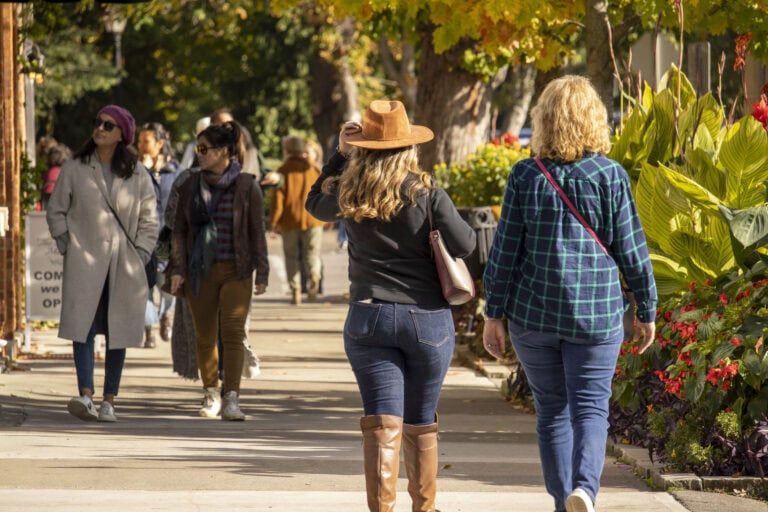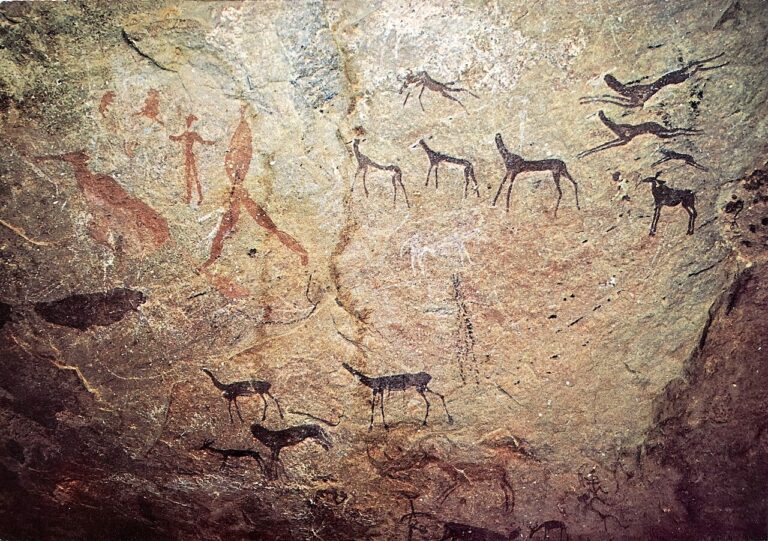THE LION, THE WITCH AND THE WARDROBE
*** (out of five)
Festival Theatre, 2 hours and 15 minutes, one intermission, ends Oct. 4. Adapted for the stage by Selma Dimitrijevic and Tim Carroll. Based on the novel by C.S. Lewis. Directed by Selma Dimitrijevic.
Between the lamppost and the great castle of Cair Paravel lies a land called Narnia, where it is always winter, snowing and silent.
Ruled by a cruel authoritarian White Witch who considers any criticism or dissent treasonous, she waves her wand and turns her enemies to stone.
Most of all, she fears that her arch enemy, Aslan the Lion, might return to challenge her reign. Or the possibility of unknown conquering humans, the rumoured sons and daughters of Adam and Eve, might appear.
It is a land gripped by fear, where even the trees might be spies and the wolves are police, ready to arrest and maul. Music, singing, dancing and Christmas are no more.
Only the Spirit of Narnia (Alana Bridgewater) remains in eerie, melancholic melodies caught on the wind to remind those attuned to what was and might still be.
Into this realm will come those humans in the form of four children, Peter, Susan, Edmund and Lucy. They have been sent by their parents to the country house of a wise professor to keep them safe from the fierce World War Two bombing of London by Nazi Germany.
What do children do when left to their own resources? Explore! There are long corridors, unoccupied rooms and, in one room, a wardrobe full of old coats. Within this wardrobe is a land of intrigue, adventure and danger that will change their lives forever. Narnia.
In writing “The Chronicles of Narnia,” C.S. Lewis influenced the lives of millions through his books and adaptations to film, television and radio. As a boy from Belfast, unhappily boarding in English schools, Lewis was fascinated by Irish, Greek, Roman and Norse mythologies and the occult. He also was a keen observer of animals and nature.
As an Oxford and Cambridge academic and one of the most influential writers of the 20th century, he focused on themes of morality, good vs. evil, humanity’s fall from grace and redemption.
In the Shaw Festival’s presentation of “The Lion, The Witch and the Wardrobe,” the intrepid Lucy (Alexandra Gratton) is the first to discover the secret of the wardrobe.
On arrival in Narnia, she meets a kind Faun (Michael Therriault) who invites her for tea but later makes a sobbing and shameful confession that he was meant to kidnap and take her to the White Witch.
What happens when personal morality conflicts with carrying out authoritarian rule? His disobedience means arrest, with terrifying consequences.
Who will believe Lucy? She is truthful and miserable when not believed. Her brother, Edmund (Dieter Lische-Parkes), the model of a sadistic schoolyard bully, jeers, taunts, lies and betrays.
He is next to discover Narnia and captured, greedily falls for the White Witch’s calculated enticements of “Turkish Delight” sweets and becoming a prince.
Soon, cautious Peter (Jeff Irving), the oldest of the children, and gentle Susan (Kristi Frank) also discover Narnia through the wardrobe. In danger of being found, the children are sheltered by the capable dam-building Mr. Beaver (Shawn Wright) and the sweet, practical Mrs. Beaver (Jade Repeta).
These delightful puppets and their superb actor handlers are a joy to behold.
Aslan, the King of Beasts, returns to Narnia and all believe that at the sound of his roar, sorrows will be no more and all will be right.
But where is the Lion? The roar is there, but the deep rich voice emanating from the small puppet lion head on the arm of slender Kelly Wong does not impress. Aslan will sacrifice himself to save the others. Will there be a redemption after death?
Aslan gives the responsibility of defeating the Witch to the children and chooses Peter to lead the revolutionary anti-White Witch forces. They will find the Lion’s courage within themselves as they battle to victory.
The lesson we are given is to find the courage to do right in the face of life’s adversities. In the words of a dancing Mr. Tumnus, to be one of “Us Lions.”
Penny-Lynn Cookson is an arts and culture historian, writer and lecturer living in Niagara-on-the-Lake.









